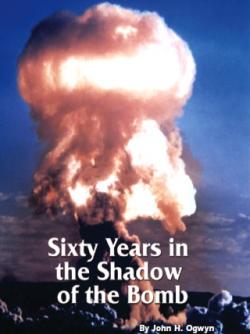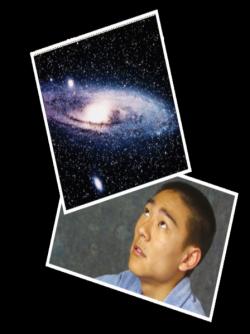Seeking the Kingdom?
Millions are seeking the happiest place on Earth. Do youknow where to find it?
Fifty years ago, on a hot summer day in Anaheim, California, cartoonist Walt Disney launched an amusement park that would become a cultural icon not only in the United States, but all around the world. In the half-century since Disneyland opened on July 17, 1955—when more than 28,000 visitors braved 100-degree temperatures to enjoy the park on its first day—more than 500 million visitors have vacationed either at Disneyland or at its sister park Disneyworld in Orlando, Florida. One estimate suggests that 70 percent of Americans will visit either Disneyland or Disneyworld at least once in their lives.
This is not just an American phenomenon. Since 1992, more than 100 million people have visited the EuroDisney theme park in Paris, France. Tokyo Disneyland, which opened in April 1983, now receives more than 10 million visits each year. Another Disneyland park is scheduled to open in Hong Kong in September 2005.
Disneyland advertises itself as the "Magic Kingdom" and "the happiest place on Earth." Tourists go there to escape, however briefly, from the cares and worries of life. The park's Frontierland attractions hearken back to a romanticized past, and its Tomorrowland attractions look forward to an idealized future. When the park first opened in 1955, founder Disney described his vision of Tomorrowland: "Tomorrow can be a wonderful age. Our scientists today are opening the doors of the Space Age to achievements that will benefit our children and generations to come… The Tomorrowland attractions have been designed to give you an opportunity to participate in adventures that are a living blueprint of our future."
Over the years, that "blueprint of our future" has changed many times. "Flight to the Moon" became "Mission to Mars." Chemical company Monsanto's "House of the Future" gave way to its "Adventure Through Inner Space." The creative minds behind Disneyland have done their best to depict a wonderful tomorrow in the "Magic Kingdom"—but that depiction has proved to be as changeable as the human mind.
Still, Disneyland taps into a desire that virtually all human beings share: a desire for a world of prosperity, pleasure and peace, offering adventure and fulfillment. Yet nobody can stay at Disneyland forever. At the end of the day, park visitors must return to a world of smog, traffic, poverty, stress and crime. So we may wonder: is Disney's vision of a "Magic Kingdom" merely the stuff of idle fantasy, or does mankind actually have some genuine hope for something better?
Jesus Christ came with a message. He proclaimed the Kingdom of God—a Kingdom that, under His leadership, will rule planet Earth and bring a thousand years of peace, harmony, justice and love after six thousand years of mankind's mis-rule. His Kingdom will then extend on into eternity, after giving every human being ever created the opportunity to hear and accept His message. At that wonderful time, as the Apostle John tells us, "God will wipe away every tear from their eyes; there shall be no more death, nor sorrow, nor crying. There shall be no more pain, for the former things have passed away" (Revelation 21:4).
Hundreds of millions on Earth today have sought the "Magic Kingdom." God's people, too, are seeking a kingdom—the true Kingdom of God. Even the happiest place on Earth today pales in comparison to God's Kingdom. This is why true Christians follow Jesus Christ's admonition: "But seek first the kingdom of God and His righteousness, and all these things shall be added to you" (Matthew 6:33). Christians who fervently seek God's coming Kingdom discover that the "happiest place on Earth" today is where they are, right now, close to the God whom they love and serve.






